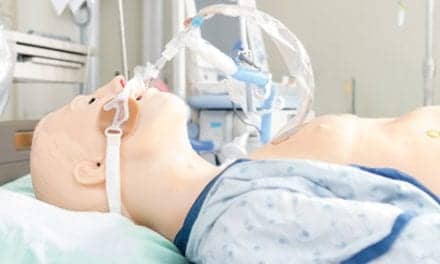More than 450 CoARC-accredited respiratory care educational programs will each receive $10,000 to use toward scholarships for current and future RTs.
RT’s Three Key Takeaways
- The NBRC allocated over $4 million in scholarship funds to 450+ CoARC-accredited respiratory care programs, aiming to bolster the profession by attracting and retaining talent.
- Scholarship funds of $10,000 per program can be used for practice exams, recruitment activities, or classroom equipment, offering flexibility to address specific educational needs.
- In addition to financial support, the NBRC leads a national campaign to raise awareness, improve recruitment, and cultivate new leadership in respiratory care to meet the growing demand and advance specialization.
The National Board for Respiratory Care (NBRC) invested more than $4 million in scholarship funds for education programs across the US as part of its continued goal to raise awareness of the value of the respiratory care profession and recruit and retain more respiratory therapists.
More than 450 Commission on Accreditation for Respiratory Care (CoARC)-accredited respiratory care educational programs will each receive $10,000 to use toward scholarships for current and future respiratory care practitioners.
The NBRC says scholarship monies can be used to purchase practice exams, support activities for the recruitment or retention of students, or to purchase classroom teaching equipment.
“By giving these monies, we are carrying out our mission-driven commitment to supporting education in hopes of recruiting and retaining more people into the field of respiratory care. The outpouring of gratitude we received when we did this in 2022 was amazing, and we know that this year’s increased contribution will only help to further build the next generation of respiratory therapists and enhance this life-saving profession,” said Lori M. Tinkler, MBA, ICE-CCP, Chief Executive Officer of the NBRC.
The NBRC supports the long-term recruitment, retention and advancement of respiratory therapists. In 2022, they invested over $2 million in scholarship funds to CoARC-accredited respiratory care programs. The NBRC Board of Trustees voted late last year to again support and provide funds for educational scholarships, grants and awards for current and future practitioners through accredited education programs. In addition, the NBRC annually funds respiratory therapy scholarships through the American Respiratory Care Foundation (ARCF), the American College for Respiratory Therapy Education (ACRTE) and the Lambda Beta Society (the national honor society for respiratory care).
According to the US Bureau of Labor Statistics, respiratory therapy jobs are projected to grow 13% by 2032, which is much faster than the average for all occupations. To address the shortage of respiratory therapists and advance specialization, Tinkler said the NBRC is also leading a multi-year, national campaign to raise awareness of the value of the profession, to improve recruitment and retention, and to identify, shape and inspire new leadership in respiratory care.
Victoria College in Victoria, TX, is one of 450+ educational institutions receiving The NBRC scholarship funds to advance the future of respiratory therapists.
“I am profoundly moved by the invaluable support provided by the NBRC in granting funds for scholarships to each of the respiratory care programs across the nation. These funds signify more than just financial assistance; they symbolize a beacon of hope for our students, empowering them to pursue their dreams and aspirations,” said JJ Valdez, Clinical Coordinator of Respiratory Care at Victoria College.
“With heartfelt appreciation, I envision utilizing these resources to serve the students’ needs, foster innovation and cultivate a standard of excellence. This scholarship is a testament to the collective commitment towards shaping a brighter future, and I am dedicated to employing these funds to nurture the minds of tomorrow, equipping them with the tools they need for success and to be a positive influence,” Valdez added.










